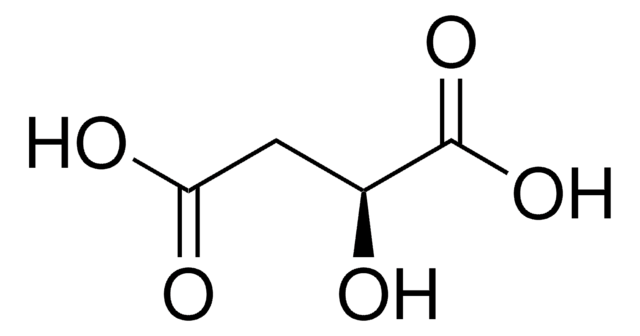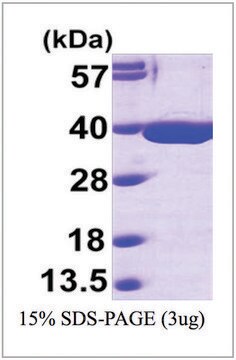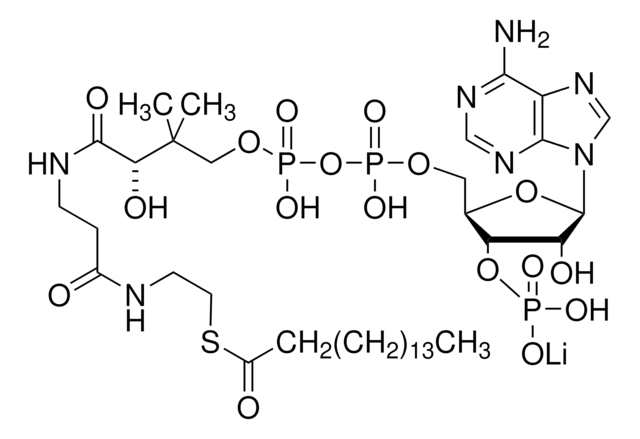SRP6103
MDH1 human
recombinant, expressed in E. coli, ≥95% (SDS-PAGE)
Synonim(y):
MDH-s, MDHA, MOR2, Malate dehydrogenase cytoplasmic
About This Item
Polecane produkty
pochodzenie biologiczne
human
rekombinowane
expressed in E. coli
Próba
≥95% (SDS-PAGE)
Formularz
liquid
masa cząsteczkowa
37.4 kDa (342 aa, 1-334 aa + CT His Tag)
opakowanie
pkg of 100 μg
metody
activity assay: suitable
numer dostępu NCBI
Warunki transportu
dry ice
temp. przechowywania
−70°C
informacje o genach
human ... MDH1(4190)
Opis ogólny
Zastosowanie
Działania biochem./fizjol.
Postać fizyczna
Uwaga dotycząca przygotowania
Inne uwagi
Kod klasy składowania
11 - Combustible Solids
Klasa zagrożenia wodnego (WGK)
WGK 3
Temperatura zapłonu (°F)
Not applicable
Temperatura zapłonu (°C)
Not applicable
Wybierz jedną z najnowszych wersji:
Certyfikaty analizy (CoA)
Nie widzisz odpowiedniej wersji?
Jeśli potrzebujesz konkretnej wersji, możesz wyszukać konkretny certyfikat według numeru partii lub serii.
Masz już ten produkt?
Dokumenty związane z niedawno zakupionymi produktami zostały zamieszczone w Bibliotece dokumentów.
Nasz zespół naukowców ma doświadczenie we wszystkich obszarach badań, w tym w naukach przyrodniczych, materiałoznawstwie, syntezie chemicznej, chromatografii, analityce i wielu innych dziedzinach.
Skontaktuj się z zespołem ds. pomocy technicznej







